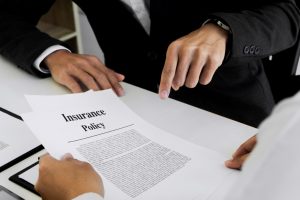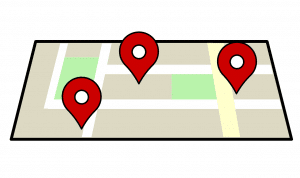The terms claim and lawsuit are often used interchangeably, but they have very different meanings and affect your business in very different ways. If you own a business, it is important to know the difference so that you can handle each situation properly, both in regards to the individual who is making a complaint against you and your insurance company. When someone files a claim against you (a claimant), it doesn’t necessarily mean that you will be facing a lawsuit. There are steps you can take to prevent major losses.
Claims

Claims are formal requests to be compensated for damages that are presented in writing to an insurance company. If you have been negligent, made a mistake, or caused some kind of loss to a customer or client, they can go to your insurance company with a claim, which could eventually lead to lawsuit.
When a customer files a claim against you, it will not necessarily cost you anything out of pocket if you are covered by a commercial liability policy. Once the customer submits a claim, your insurer assigns the case to a claim adjuster who then reviews the submitted documents and investigates further. Then a series of back-and-forth negotiations are initiated between the insurer and the claimant, which will result in a final claim amount being settled upon. The money is given to the claimant and the whole thing is over. As long as you have insurance when the incident occurs, then your policy will take care of it.

Lawsuits
Lawsuits are more involved than claims, and will cost you much more than a claim made against your business. A lawsuit is filed if no settlement can be reached through the claims procedure, or when the demands of the claimant are not met. You can attempt to resolve the lawsuit via mediation, but, no matter what, a lawsuit will cost you more than a claim. This is because you will have to hire an attorney to represent you even in the case of a mediated suit. You could end up losing a substantial amount of money during a lawsuit, through both attorney fees and damages, which could greatly hurt your business.
What You Can Do
The best way to protect your business from both claims and lawsuits is to have commercial liability insurance. A general liability insurance policy will protect you in most instances, but a professional liability insurance plan will cover your business for claims resulting from a service provided. Errors and omission insurance, which falls under the umbrella of professional liability insurance, is claims-made coverage, which means the policy will cover claims on active policies regardless of when the claim happened. If you want to simplify your commercial insurance, a business owner’s policy can bundle all of your coverage needs into a single policy. It is best to stay ahead of the game before a claim is made against your business. Accidents happen, so it’s important to make sure you are protected.

Need Help?
Don’t make the mistake of getting the bare minimum commercial insurance coverage that just includes the basics. If you don’t have the proper liability insurance, you could end up losing your business. Liability coverage will help cover the cost of lawsuits, including your legal defense and any damages that you are ordered to pay.
To find the right commercial insurance to fully protect you from a claim or lawsuit, you need to do a lot of research, because different businesses will require different policies. EZ’s agents are trained in the commercial insurance industry so we can help cover you and your business. We understand how important it is to protect something that you worked so hard to build. Our agent will go over all the policies you need and will find the best rates with the most coverage. To start comparing plans for free, enter your zip code in the bar above, or to speak to an agent, call 888-615-4893.















